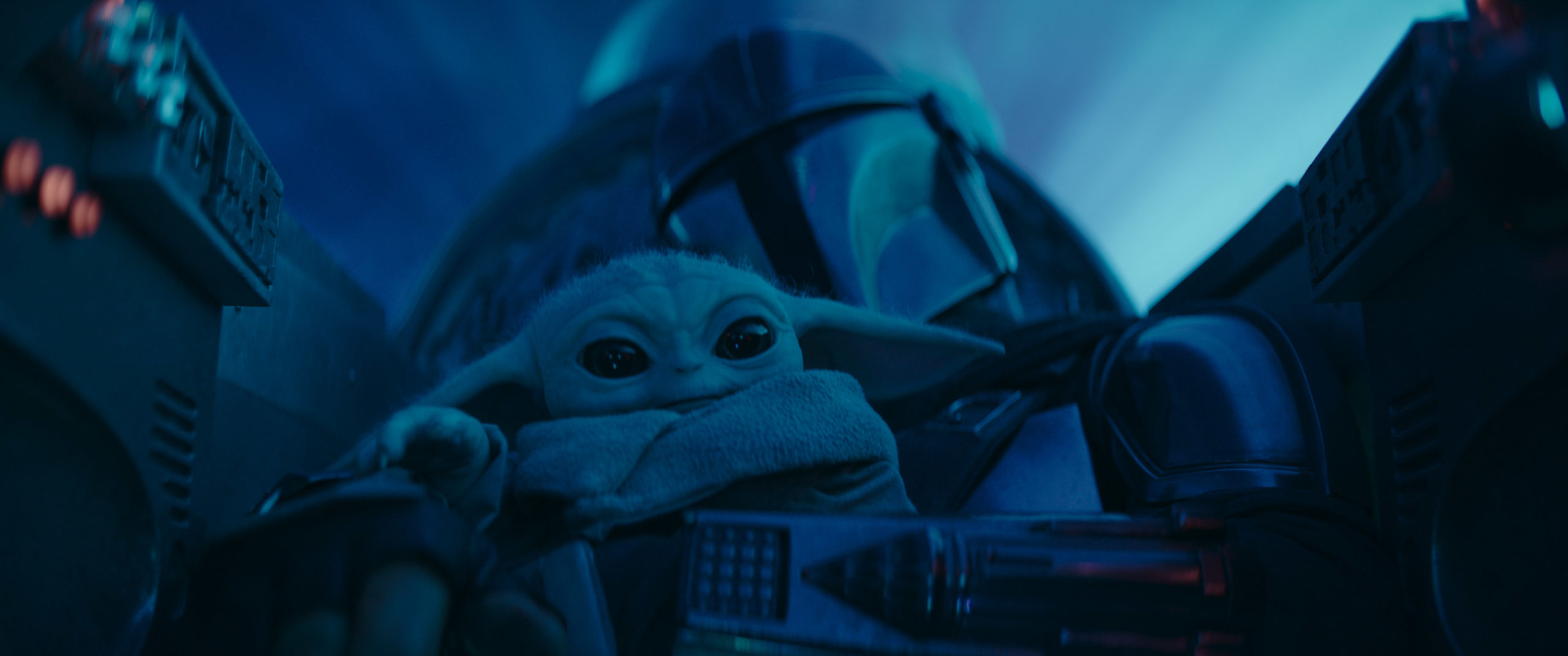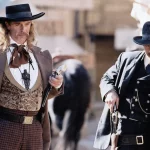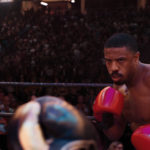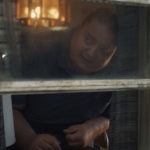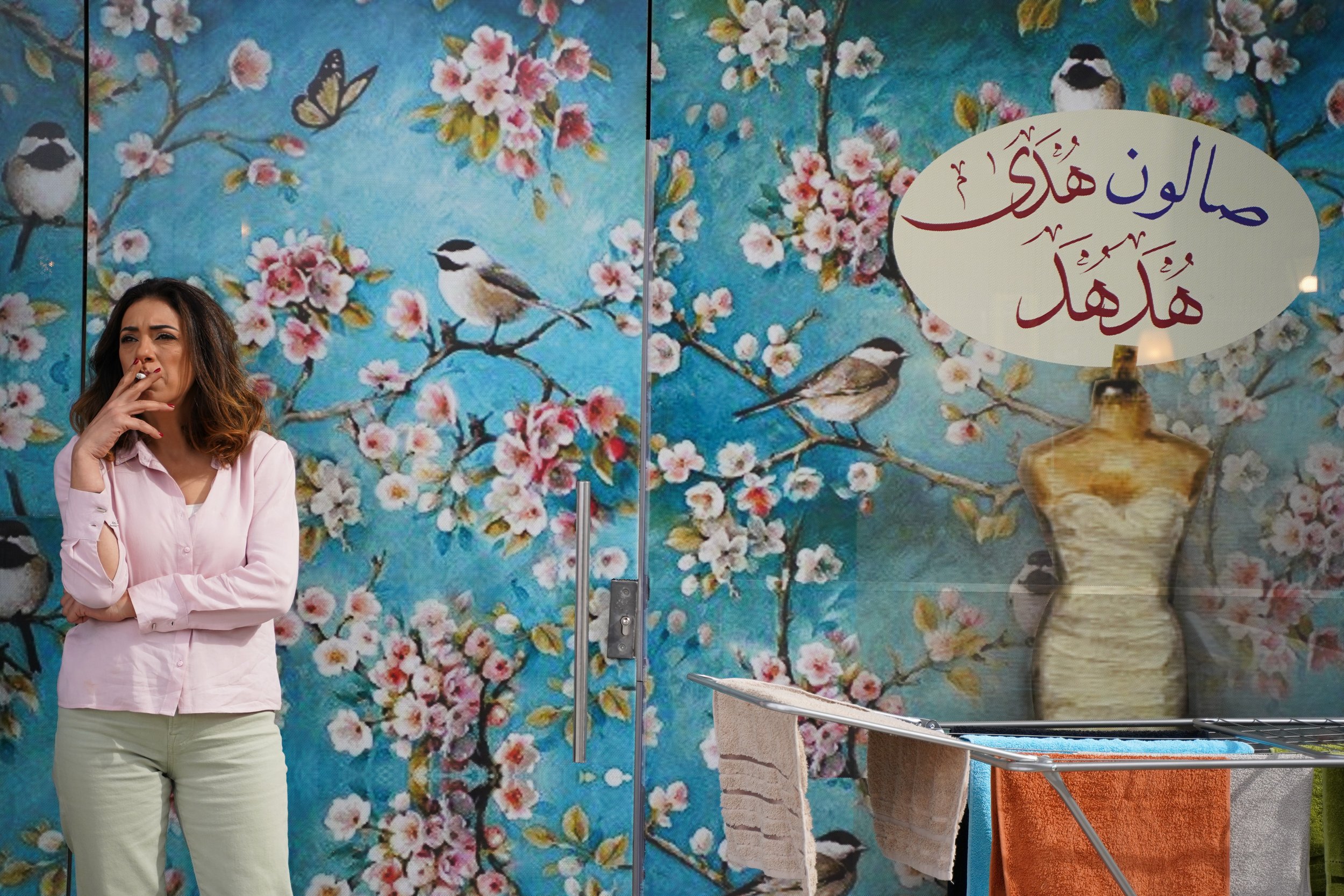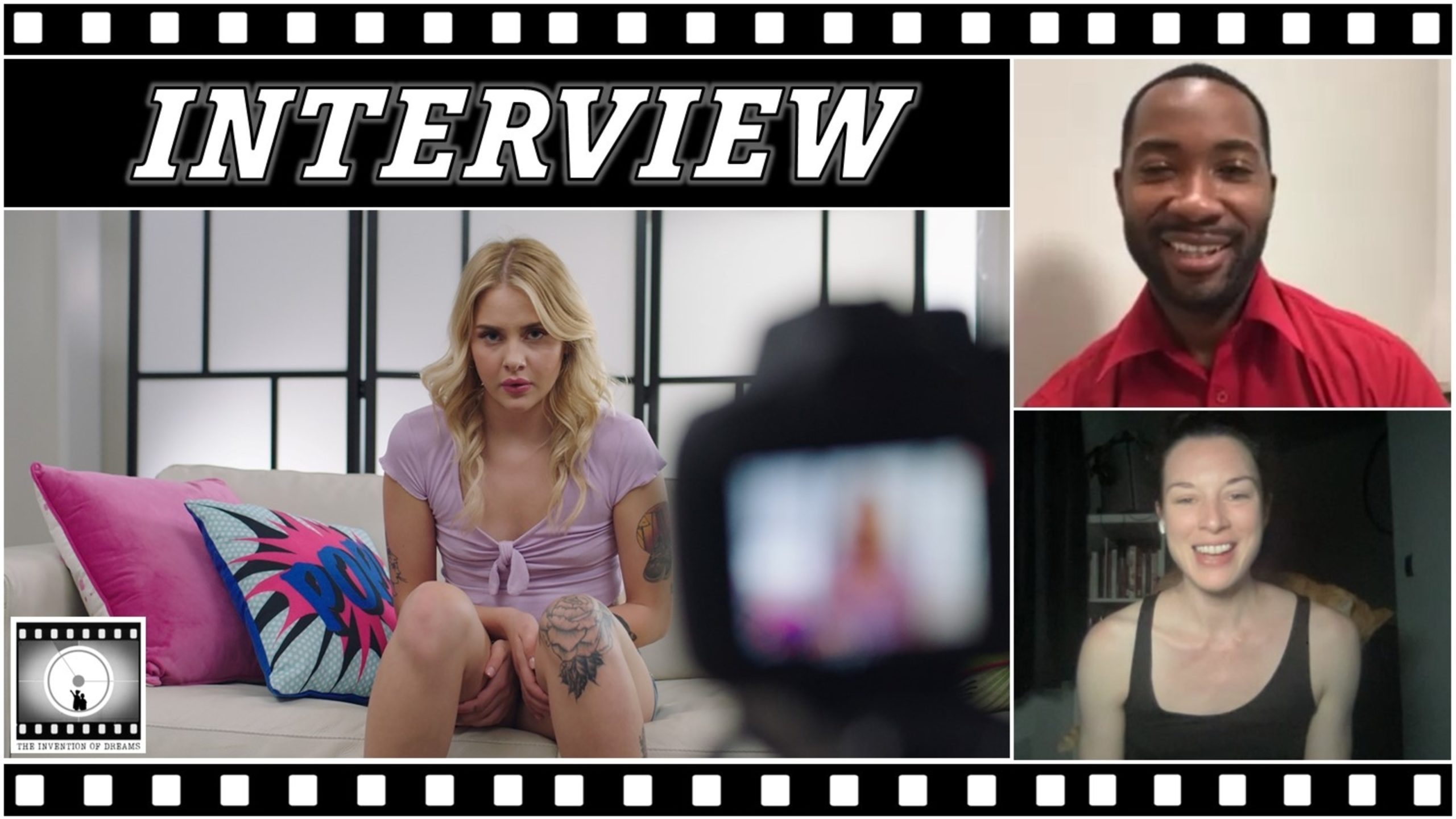I had the chance to speak with director Colin West about his new film Linoleum, a sci-fi tinged dramedy about love, family, and aging. After making a wealth of short films, Linoleum is West’s second feature film as a director. The film premiered at South by Southwest 2022 in the Narrative Feature Competition.
Linoleum, at least in part, tells the story of a Bill Nye-inspired science TV show host who decides to build a rocket ship after a satellite crashes in his backyard. But really the film is about a great deal more focused on smart, textured ruminations on interpersonal relationships. I found the film’s last act quite moving, and not at all in the ways I had expected. West shows a real storytelling knack in nailing something complex and multilayered here – this is a director to watch. On a personal note, I particularly enjoyed this interview. Colin and I are about two years difference in age and it felt like his film spoke to something very personal in me.
Video:
Transcript:
The following has been lightly edited for clarity and conciseness.

The Inspiration Behind Linoleum
Colin it’s nice to chat today. I loved the film. I’ll admit my living room got a little dusty at the end there. I definitely felt a few feelings here!
West: That’s cool!
I’m very excited to talk to you about it.
West: For sure, Bernard! I was so interested in the name of your company. The Invention of Dreams! Tell me about it! That feels so related!
It really does! So it comes from a book called “The Invention of Hugo Cabret” which Martin Scorsese turned into a movie called “Hugo.”
West: Yes! Ok – I’ve seen Hugo
There’s a film professor in it who wrote a book called “The Invention of Dreams” about George Melies and the early days of film and I thought it was such an evocative title to use to capture what we’re trying to build here.
West: I love that. I love that! That’s so good!
So how did you come up with the idea for “Linoleum”?
West: Linoleum was born out of a whole lot of things. It’s a pretty layered film, but I think the main inspiration came from my grandparents’ relationship. They met when they were 16 and started dating. They were together until their mid 80s when they passed away. That was the initial spark for this story, trying to illustrate a relationship over that amount of time. That was the initial place it was born. It was a long writing process so I started in about 2015 and worked on the script for about 5 years before we shot.
The Casting of Jim Gaffigan, Rhea Seehorn, and the Rest of Linoleum’s Excellent Ensemble
One of the things that struck me is you brought together such a remarkable cast. I was curious how you brought together this group of people – they’re wonderful.
West: Our amazing casting director Jessica Sherman had a huge part in that. She was great along the way and brought about a lot of wonderful people. Casting is so much fun as a director to imagine the movie in all these different ways and all these different iterations. I agree – I’m thrilled with the way it all turned out. I knew early on that getting a comedian to play the lead role was something I was very interested in doing. It’s a real acting challenge. There’s so many different things that Jim Gaffigan has to do in that lead role – it’s a challenge. I could see with the other films he could do the drama, and of course he could do the comedy with his stand-up. Seeing Jim as a children’s science TV host – a Bill Nye The Science Guy – what an opportunity! Rhea Seehorn who plays his wife, a brilliant scientist and engineer, who is going through her own midlife crises in a major way, she was such a good sport. We had some great conversations going into it. We shot during early early COVID. None of these actors were working. Almost nobody was, and almost nobody even wanted to. There was risk involved. We obviously took it very seriously and did all the testing and had no cases of COVID, but casting was interesting in the age of COVID.
The Dual Nature of Jim Gaffigan’s Performance
Jim has a particularly difficult role here with the two different parts. I was curious how you went about working with him to build out the distinctions in the two characters.
West: Of course. It’s funny – we had conversations about it early when we were first meeting up. Oddly enough, right when we went into hair and makeup and did some tests with the mustache and the hair pieces that he wears as the other character. Interestingly enough, I feel like that’s all we had to do. It was like he put it on – the suit and the costume – and he was immediately that character in a way that I think almost scared himself. It was to the point where I didn’t even really want to eat lunch with him when he was in that vibe. He was a real good sport about it. We developed it by having conversations about our own experiences growing up with our own fathers, not that my father was anything like this character. But, of course, fathers are intimidating and it comes down to elevating that aspect of it. He really leaned into that character in a way that even surprised me, and I was pretty blown away by it.
The Brilliance of Rhea Seehorn
It’s interesting what you say about parenting. I wanted to ask about Rhea’s part and in particular the scene where she gets frustrated with her daughter, says “fuck you” to her, and immediately regrets it. As a moment of two small kids, I found that moment incredibly relatable.
West: :Laughter:
I was curious how you balance out the way dads are intimidating in one way while mothers tend to be the recipient of a lot more grief from children. I was hoping you could speak to where that moment came from in her performance and the balancing of the paternal and maternal here.
West: Sure. Saying something like that to her daughter in that moment was really the changing point for that character. She realizes that she has become someone she doesn’t want to be. That was what we needed out of that moment and Rhea is… I’ve just never really worked with someone as talented as Rhea. She has so much experience in the TV world and the feature world, but that moment all came down to this two or three minute build-up of this argument that leads to that moment. The shift that needed to happen immediately following was such an important little beat. We did it a few times. The car was not really working very well for us. The one take where she really nailed it the car actually died as it was happening. The car comes to a stop and she says the line and immediately after I was like “Oh my god! That was it!” and she was worried that the car died. I said “we’re using it!” We definitely leaned into that. That was her big turning point.
West’s Aesthetic Choices in Designing Linoleum
One of the things I really enjoyed about the film were the aesthetic choices that you made. There’s some late 60s period staging. There’s what feels like some late 80s/early 90s – I think we’re of a similar age so stuff we recognize from our childhood. I’d love to hear about your process for finding the right locations and right designs.
West: Sure Bernard. I think the look really comes down to my collaboration with two people: my production designer, Mollie Wartelle, and my cinematographer, Ed Wu. The three of us had such a good time building out this world with the whole rest of the team. Those two were integral in the way in which we presented this world. Internally, we kept coming back to the idea of a snow globe-like environment. Everything is related but all encapsulated in its own cosmic universe. It’s not really our world; it’s more like some version of a world that’s just like our world, but kind of off. We really tried to lean into that. The thing about the movie is that it really takes place in three time periods all at once without telling you. It takes place in 1968, 1990, and 2022 without revealing that. So there was a delicate balance where we didn’t want to lean too heavily into one or the other while we still played in this world of nostalgia. I think Molly was particularly good at honing in on at that world in terms of what the designs are that carry us. The 90s are influenced by the 60s. There are through lines to be drawn. She’s a professional with that and knows her stuff. These patterns and colors we were leaning into were important to us and, frankly, really fun! It was a good fun challenge to figure out how we can invent this world that by the end of the movie pays off. You can watch the movie again and be like “Wait! They’re playing a Game Boy, but also there’s a dress code at the school!” Know what I mean? These things are kind of multi-generational.
Bill! Bill! Bill! Bill! Bill! Bill Nye The Science Guy!
One of the other design choices I thought was really great was the Do-It-Yourself aesthetic of the Bill Nye-esque TV show. I was curious what inspired you there.
West: Bill Nye inspired me there! I was a huge Bill Nye fan!
So was I!
West: I was a huge Bill Nye fan. I was told last night that he’s here at South by Southwest.
He’s gotta see this movie!
West: I know! I’m like “I’m getting him a ticket!” I don’t know how to get in touch with him but I’ve got to figure it out. He was such an inspiration to me as a kid. I think if I wasn’t an artist I would be a scientist. I do think there’s a lot more overlap there than the world gives credit for – there’s so much creativity in both fields. I would get home from school and watch Bill Nye I liked it so much, know what I mean?
I was the same kid! :Laughter:
West: :Laughter: So that was an easy inspiration to draw from. There was so much fodder in my brain to play with from that sandbox. I think it was important to approach science in this kind of innocent way in the movie. I think there’s an innocence to the way the DIY aspect of the sci-fi aspect of the movie comes into play. The rocket ship and these things that are happening to really bring it down to Earth, the DIY aspect is really just character. It’s character building because you see the unique handmade aspect of these objects and realize that Cameron, this character, actually built all these in his garage. He hand painted that little detail. Obviously, it was our art team, but it all comes down to the compassion he has for teaching, giving, and for the subject of science. In that way, you almost feel for him because the whole show is him and it’s taken away from him. That was a fun sandbox to play in.
The Perspectives of Youth and Aging in Linoleumm
One of the things I appreciated thematically is that it feels like there’s a real element of – particularly Jim’s character – coming to appreciate the good. Even if life didn’t work out exactly the way he wanted, I think you see it a lot in the way he has gone back to watch old episodes of his show in his darker moments that I really appreciated. I’d love to hear you speak to your intention there.
West: For sure, it is interesting. I often make films about older people. I don’t know where that comes from. I remember my dad a few years ago… I had made a short film about similar themes and he said “Colin! You shouldn’t even know about this stuff yet!” :Laughter:
:Laughter:
West: I think I’ve always been a nostalgic person. I’m always looking back. I’m looking forward too, and I have aspirations looking forward. But man do I love going to places I went as a kid. Going back to the library I used to go to or the park. My parents still live in the same house I grew up in so I can go to my room. I find a certain amount of joy in that. I think as far as this sort of aspiration aspect and measuring success aspect and being ok with where you are now… it does come down to that. You can live in your own dream state reality, but it’s important to consider how your younger self might consider you now. My younger self would be like “Man! You made a movie! That’s cool! Good job!” Part of it is imagining what it would be like to talk to your younger self and learning from your future self. It’s all threaded into the movie.
I’ll say I think that element really spoke to me. I’m someone who now takes my kids on the same trips I used to go on as a kid.
West: Yes! That’s cool!
I gather we’re coming to the end of our time, but I did want to say congratulations. I thought the film was great. I hope an awful lot of people get the chance to see it very soon.
West: Thanks Bernard. I really appreciate it. It was great to talk to you.
Linoleum premiered at SXSW ‘22.



